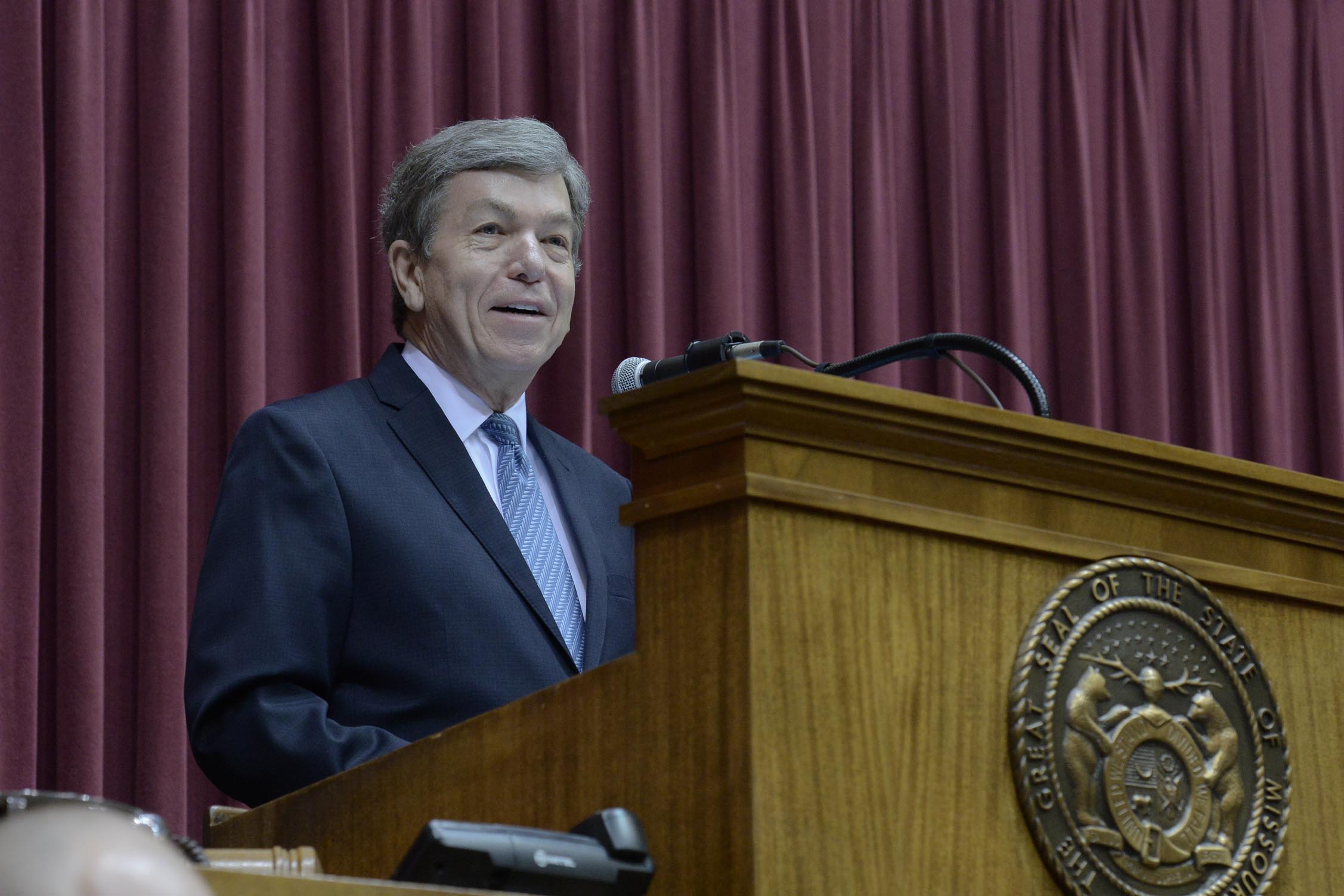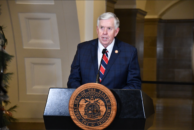With millions in federal funds earmarked for broadband infrastructure, U.S. Senator Roy Blunt said enhancing the network was essential for Missourians.
Blunt joined Boone County leaders in a discussion on broadband access Wednesday afternoon, gathering feedback from educators and providers on the effort to strengthen Missouri’s network. He noted the increased emphasis on connectivity over the past year as the COVID-19 pandemic pushed many of life’s necessities online and said the major battles moving forward were access and affordability.
“One of the biggest things to come out of the pandemic was a real appreciation for the effort the county commission here has been making and others have been making for a long time to get us connected with broadband,” Blunt said. “Suddenly people were working from home, going to school at home, getting their health care at home. … We’re going to have to factor all that into how we make this work.”
Columbia Mayor Brian Treece noted the economic benefits of the city’s high-speed network: Businesses are employing hundreds of remote workers in Columbia, according to Treece, a trend he hoped to see continue across the state as the network is built out.
“It’s not only about health and education, it’s an economic development issue,” Treece said. “I think Columbia is a great place to live, and there are people who can perform their job anywhere in the world. We can attract more of them, more entrepreneurs and their ideas if we had accessible and affordable high-speed internet — I think it’s a real game-changer.”
Blunt voted in favor of Congress’s $1.2 trillion infrastructure package that seeks to invest a minimum of $100 million to improve the state’s broadband infrastructure, a large enough sum to impact a majority of underserved Missouri households. Blunt noted the distribution of funds would ultimately fall to the Federal Communications Commission (FCC) and that he was working with commissioners to secure a large sum for the state.
Blunt also praised Missouri’s electric cooperatives for their push to expand access to rural parts of the state, an effort the cooperatives began pursuing long before the start of the pandemic. Cooperative managers implored legislators to increase funding for broadband projects last month, comparing the effort to the rural electrification push facilitated decades ago.
Broadband access has long been a topic of conversation in Missouri, especially since the pandemic drove education and work online last year. The House Interim Committee on Broadband Development has heard testimony from state associations and internet service providers on best practices to expand access to rural areas and is set to file a report with its findings and recommendations at the end of the year.
Missouri ranks No. 32 in broadband access with 147,000 unserved or underserved households and more than 392,000 individuals without reliable internet access, according to the Office of Broadband Development. However, the state has made drastic improvements despite the high numbers, substantially increasing its ranking since 2018.
According to a recent interactive map unveiled by the White House, a majority of Missouri counties have at least 15 percent of their population without internet access at all with rural areas reporting even higher percentages.

Cameron Gerber studied journalism at Lincoln University. Prior to Lincoln, he earned an associate’s degree from State Fair Community College. Cameron is a native of Eldon, Missouri.
Contact Cameron at cameron@themissouritimes.com.








































